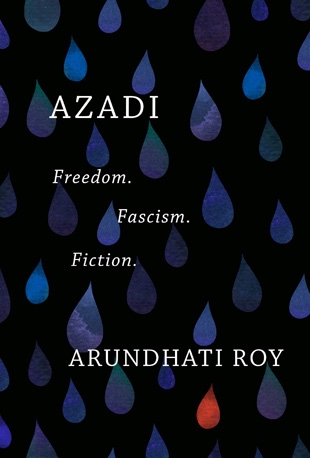In my Spiritual Literacy Blog post of April 21, 2020, I previewed an essay titled "The Pandemic Is a Portal," which appears in this book by Arundhati Roy, the author of the novel The God of Small Things, which won the Booker Prize. For years, she has courageously spoken out about the dangerous and dehumanizing globalism of the world's economy where the poor become pawns sacrificed in the chess game of the free market. In Power Politics, she wrote from New Dehli, India:
"To be a writer in a country where something akin to an undeclared civil war is being waged on its subjects in the name of development is an onerous responsibility. When it comes to writers and writing, I use the words like 'onerous' and 'responsibility' with a heavy heart and not a small degree of sadness."
Roy takes up that onerous responsibility again in the cogent and thought-provoking essays and speeches in Azadi (the word for freedom in the Urdu language). She describes a world in chaos, ripped apart by violence and economic inequality. The invasion of Kashmir and the rise of totalitarianism in so many countries are examples of political turmoil.
Let me circle back once again to Roy's essay "The Pandemic Is a Portal" where she stated:
"People will fall sick and die at home. We may never know their stories. They may not even become statistics. . . . What is this thing that has happened to us? It's a virus, yes. In and of itself it holds no moral belief. But it is definitely more than a virus. . . . Whatever it is, coronavirus has made the mighty kneel and brought the world to a halt like nothing else could."
And although I quoted these lines in my blog post, they bear repeating here:
"Historically, pandemics have forced people to break with the past and imagine their world anew. This one is no different. It is a portal, a gateway between one world and the next. We can choose to walk through it, dragging the carcasses of our prejudice and hatred, our avarice, our data banks and dead ideas, our dead rivers and smokey skies behind us. Or we can walk through lightly, with little luggage, ready to imagine another world. And ready to fight for it." At the end of my review of Power Politics, I wrote: "We need to hear more of Arundhati Roy's righteous indignation over the widespread and dehumanizing injustices of our time." Azadi: Freedom. Fascism. Fiction. fills the bill.
